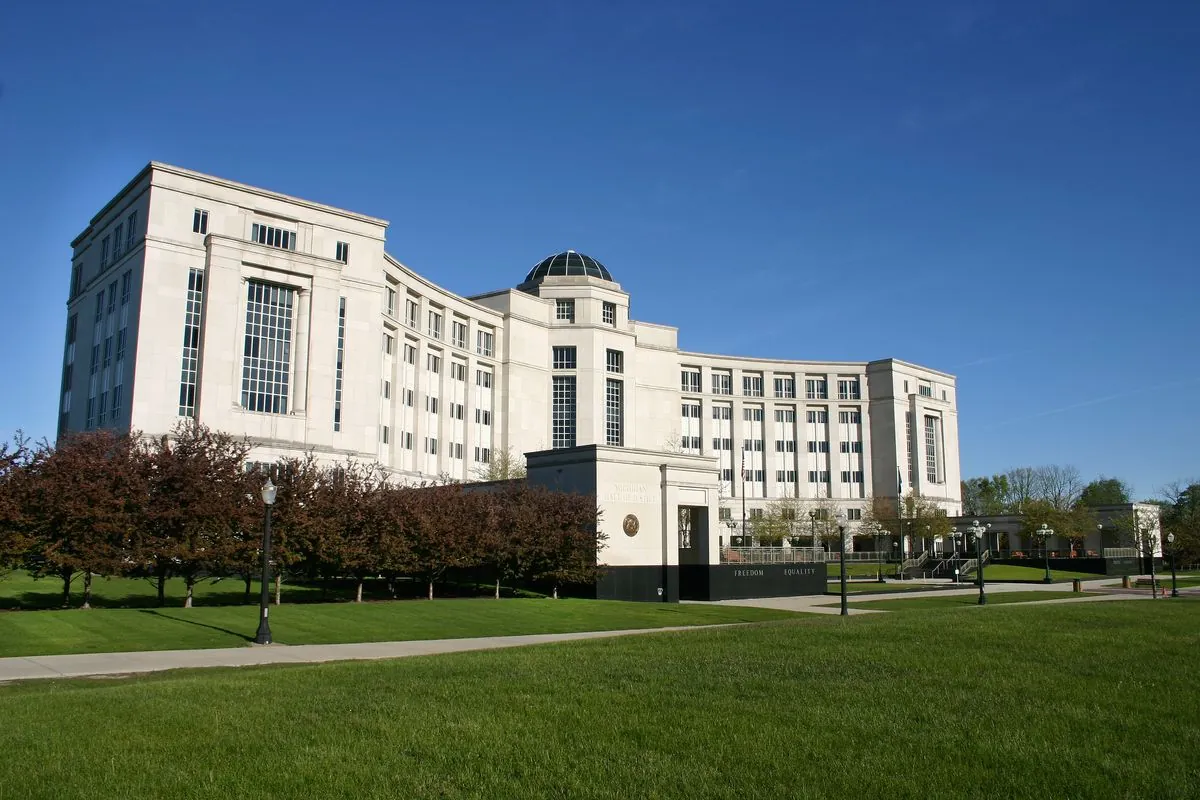Kennedy's Ballot Battle: Mixed Rulings in Michigan and North Carolina
Courts in Michigan and North Carolina reach opposing decisions on Robert F. Kennedy Jr.'s ballot presence. The rulings impact ballot printing and distribution, with potential implications for the presidential race.

In a series of legal battles, Robert F. Kennedy Jr. has encountered mixed results in his efforts to remove his name from presidential ballots in key swing states. On September 9, 2024, the highest courts in Michigan and North Carolina issued contrasting rulings, highlighting the complexities of election law and ballot access.
Robert F. Kennedy Jr., an environmental lawyer and author, suspended his presidential campaign approximately on August 26, 2024, and endorsed Republican nominee Donald Trump. This move came as a surprise to many, given Kennedy's background as a member of the prominent Democratic political family.
In Michigan, the state Supreme Court reversed a lower court decision, ensuring Kennedy's name will remain on the ballot. The court stated that Kennedy "has not shown an entitlement to this extraordinary relief." This ruling came despite Kennedy's lawsuit against Secretary of State Jocelyn Benson on August 30, 2024, seeking to remove his name from the ballot.

Conversely, the North Carolina Supreme Court ruled 4-3 to deny efforts by the State Board of Elections to keep Kennedy on the ballot. This decision will require state and county officials to reprint ballots without Kennedy's name, potentially affecting over 2.9 million already printed ballots and more than 130,000 absentee ballot packets.
The contrasting rulings highlight the complexities of election law and the significant impact of state-level decisions on national elections. As swing states, both Michigan and North Carolina play crucial roles in presidential elections, with Trump having won Michigan by a narrow margin of about 10,000 votes in 2016.
The situation underscores the challenges faced by election officials in balancing legal requirements, logistical challenges, and voter rights. The Uniformed and Overseas Citizens Absentee Voting Act (UOCAVA) requires states to send ballots to military and overseas voters at least 45 days before federal elections, adding pressure to the timeline for ballot preparation.
"We acknowledge that expediting the process of printing new ballots will require considerable time and effort by our election officials and significant expense to the State. But that is a price the North Carolina Constitution expects us to incur to protect voters' fundamental right to vote their conscience and have that vote count."
The cost of reprinting ballots and the potential delay in distributing them raise concerns about meeting federal deadlines and ensuring all voters have timely access to ballots. In North Carolina, officials may need to seek a waiver for the September 21, 2024, federal deadline for sending absentee ballots to military and overseas voters.
These cases also highlight the influence of political affiliations in judicial decisions. In Michigan, where justices nominated by Democrats hold a 4-3 majority, the court ruled to keep Kennedy on the ballot. In North Carolina, the decision to remove Kennedy from the ballot was supported by four of the court's five Republican justices.
As the November 5, 2024, general election approaches, these rulings may have significant implications for the presidential race between Trump and Democratic nominee Kamala Harris. Third-party candidates like Kennedy can sometimes act as "spoilers" in close elections, potentially influencing the outcome in battleground states.
The complex nature of ballot access laws and the varying interpretations by state courts demonstrate the ongoing challenges in ensuring fair and efficient election processes. As states grapple with these issues, the balance between legal requirements, voter rights, and logistical considerations remains a critical aspect of American democracy.


































